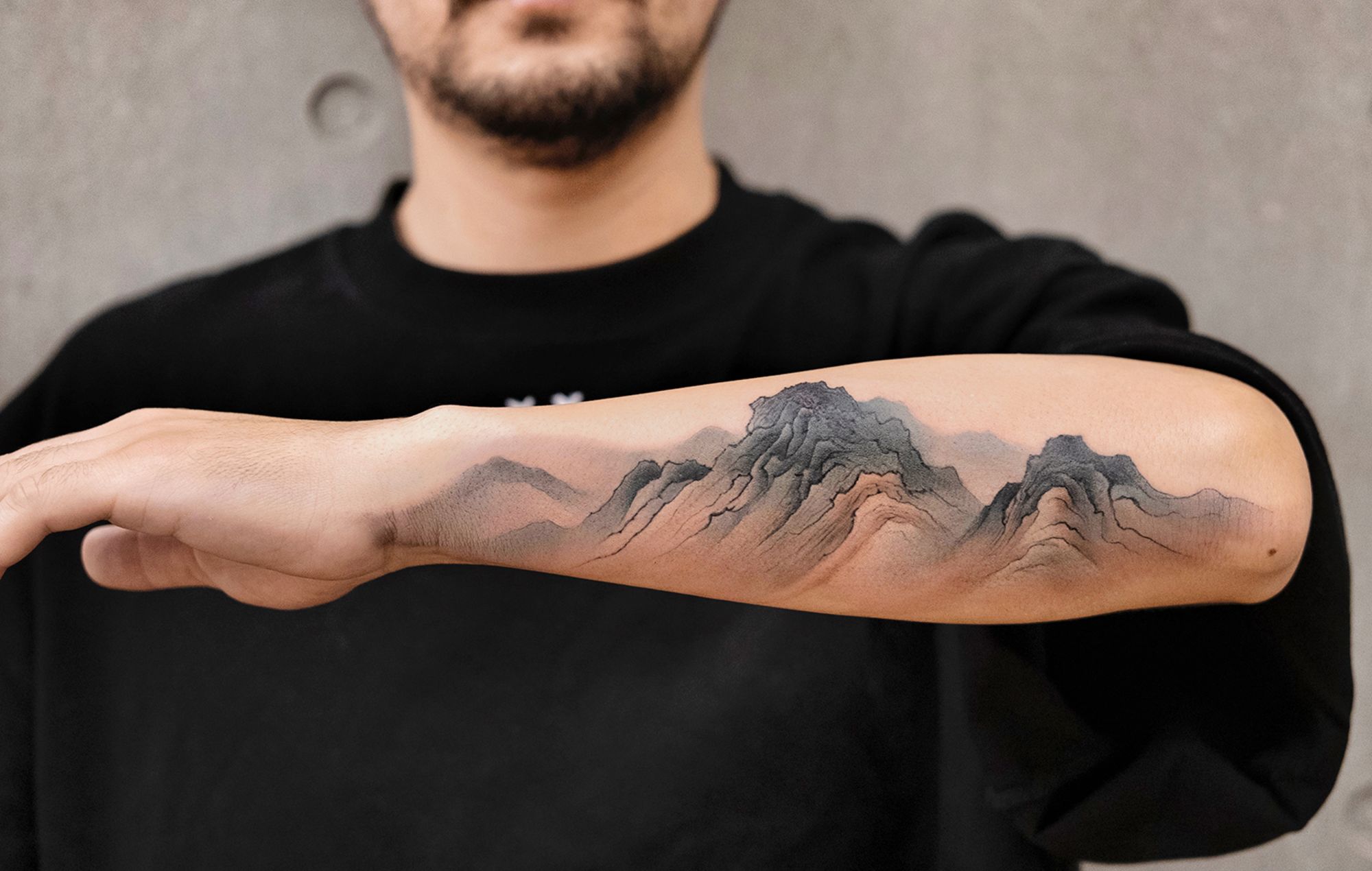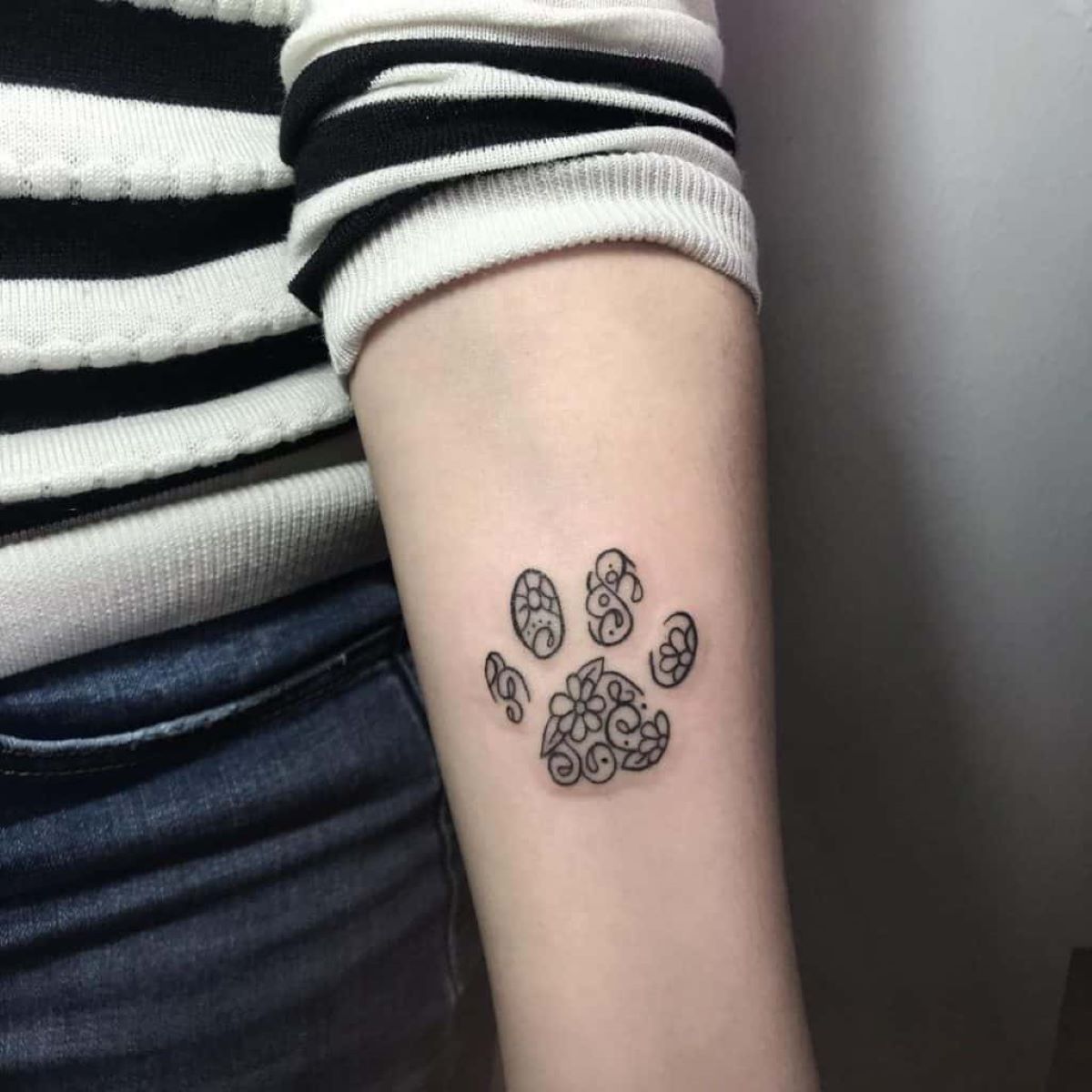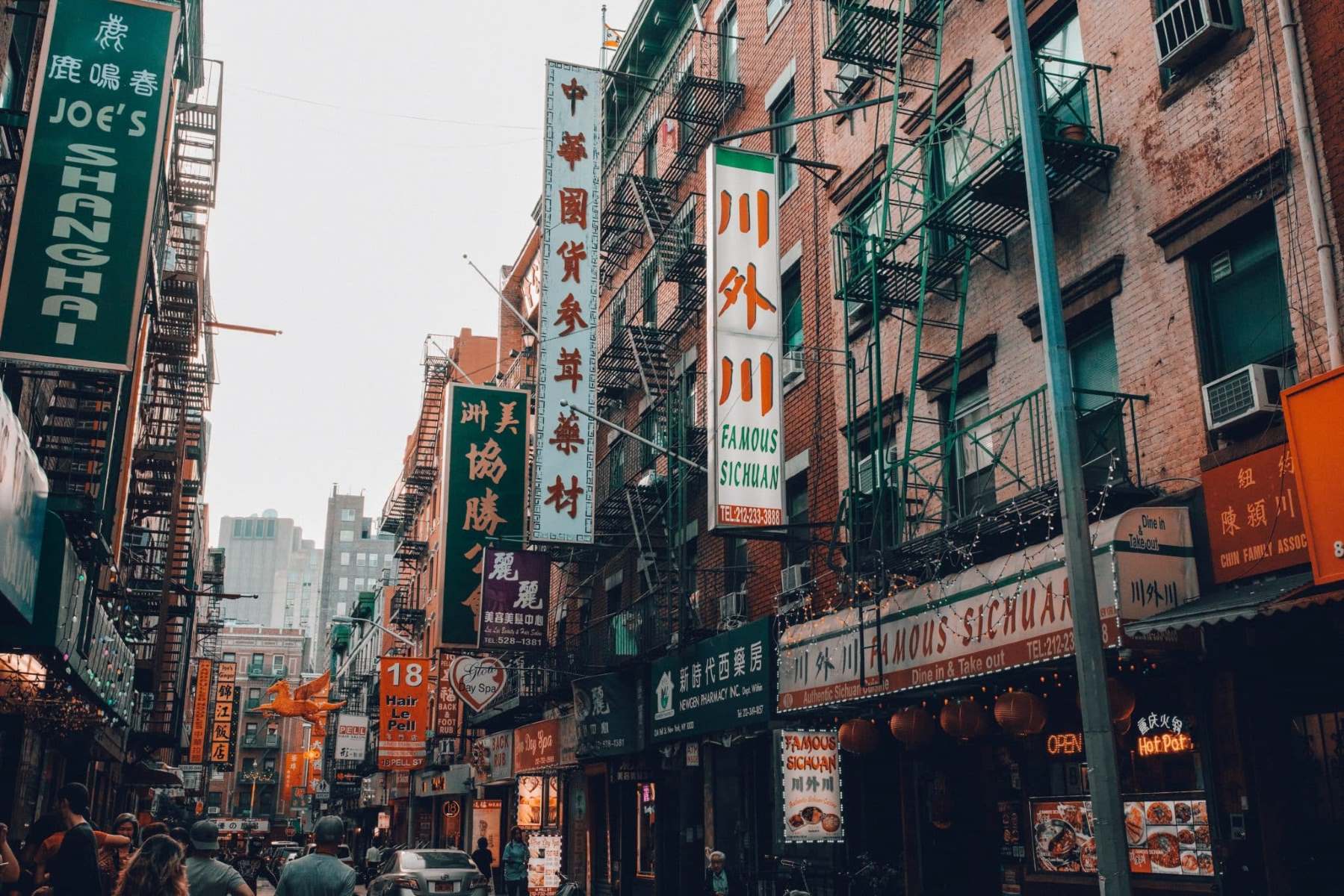Home>Arts and Culture>The Surprising Reaction Of Chinese People To Foreigners With Chinese Tattoos


Arts and Culture
The Surprising Reaction Of Chinese People To Foreigners With Chinese Tattoos
Published: February 2, 2024
Discover the unexpected responses of Chinese individuals to foreigners with Chinese tattoos in this insightful exploration of arts and culture. Uncover the cultural significance and impact of these tattoos on Chinese society.
(Many of the links in this article redirect to a specific reviewed product. Your purchase of these products through affiliate links helps to generate commission for Regretless.com, at no extra cost. Learn more)
Table of Contents
- Introduction
- Understanding Chinese Cultural Attitudes Towards Tattoos
- The Symbolism of Chinese Tattoos
- The Impact of Foreigners with Chinese Tattoos in China
- The Surprising Reactions of Chinese People to Foreigners with Chinese Tattoos
- Factors Influencing Chinese Perceptions of Foreigners with Chinese Tattoos
- Conclusion
Introduction
Tattoos have long been a form of artistic expression and cultural significance across various societies. They serve as a visual narrative, reflecting personal beliefs, experiences, and affiliations. In recent years, the popularity of Chinese tattoos among foreigners has sparked curiosity and raised questions about how they are perceived in China. This cultural phenomenon has given rise to an intriguing exploration of the surprising reactions of Chinese people to foreigners adorned with Chinese tattoos.
The allure of Chinese characters and symbols as tattoo designs has transcended geographical boundaries, captivating individuals worldwide. For many, these intricate and visually striking motifs hold profound meanings, representing concepts such as strength, resilience, love, and spirituality. However, as foreign visitors or expatriates bearing Chinese tattoos venture into China, they often encounter a spectrum of responses from the local populace, ranging from curiosity and admiration to skepticism and even disapproval.
This article delves into the multifaceted dynamics at play when foreigners with Chinese tattoos interact with the Chinese community. By examining the cultural attitudes towards tattoos within China and the symbolism associated with Chinese body art, we aim to unravel the complexities underlying the unexpected reactions evoked by these tattoos. Furthermore, we will explore the factors influencing Chinese perceptions of foreigners adorned with Chinese tattoos, shedding light on the intricate interplay of tradition, modernity, and cross-cultural encounters.
Join us on this captivating journey as we navigate the captivating realm of Chinese tattoos and unravel the enigmatic responses they elicit within the vibrant tapestry of Chinese culture.
Understanding Chinese Cultural Attitudes Towards Tattoos
Tattoos have historically held diverse cultural connotations, and in China, their significance is deeply rooted in tradition and symbolism. The perception of tattoos within Chinese culture is influenced by centuries-old beliefs and societal norms, shaping the attitudes of the populace towards body art. Traditionally, tattoos were associated with criminality and social stigma in China, as they were often linked to marginalized groups and perceived as a mark of rebellion against societal norms.
In Chinese culture, the body is regarded as a sacred vessel, and the notion of permanently altering its natural state through tattoos has been met with reservations. The association of tattoos with criminality and defiance has contributed to the prevailing stigma attached to body art within traditional Chinese society. Furthermore, the emphasis on maintaining harmony and preserving one's natural form has underscored the conservative attitudes towards tattoos, particularly among the older generations.
Despite these traditional attitudes, contemporary China has witnessed a gradual shift in perceptions towards tattoos, especially among the younger populace. With the influence of global trends and evolving cultural dynamics, tattoos are increasingly being embraced as a form of self-expression and artistic adornment. This shift is evident in urban centers, where a burgeoning tattoo culture has emerged, challenging the long-standing taboos associated with body art.
It is important to recognize that while attitudes towards tattoos are evolving in China, the traditional undercurrents of symbolism and cultural significance remain deeply ingrained. Chinese symbolism and iconography play a pivotal role in shaping the perception of tattoos, as they are often imbued with profound meanings derived from ancient philosophies, folklore, and spiritual beliefs.
The intersection of traditional values and contemporary perspectives underscores the complexity of Chinese cultural attitudes towards tattoos. As we delve deeper into the symbolism of Chinese tattoos and their impact on the cultural landscape, we gain valuable insights into the intricate tapestry of beliefs, traditions, and societal transformations that define the Chinese approach to body art.
The Symbolism of Chinese Tattoos
Chinese tattoos encompass a rich tapestry of symbolism, drawing inspiration from ancient philosophies, mythologies, and cultural heritage. Each motif and character encapsulates profound meanings, resonating with themes of prosperity, resilience, and spiritual enlightenment. The intricate symbolism embedded within Chinese tattoos serves as a testament to the enduring legacy of Chinese traditions and the timeless allure of their cultural heritage.
One of the most prevalent motifs in Chinese tattoos is the dragon, a revered symbol of power, strength, and good fortune. The dragon, often depicted in vibrant hues and intricate designs, embodies the essence of imperial authority and celestial prowess in Chinese mythology. As a tattoo, the dragon symbolizes resilience and auspicious blessings, evoking a sense of majesty and invincibility.
In contrast, the serene beauty of the lotus flower holds profound significance in Chinese culture, symbolizing purity, enlightenment, and spiritual rebirth. The lotus, with its delicate petals emerging from the murky depths, represents the journey towards enlightenment and the triumph over adversity. When adorning the skin as a tattoo, the lotus serves as a poignant emblem of inner strength and the transformative power of resilience.
Furthermore, the majestic phoenix, a mythical creature of unparalleled beauty and grace, embodies themes of renewal, resilience, and rebirth. In Chinese folklore, the phoenix symbolizes immortality and the cyclical nature of life, representing the enduring spirit of hope and renewal. As a tattoo, the phoenix conveys a narrative of triumph over adversity and the resilience to rise from the ashes, resonating with themes of empowerment and renewal.
The enduring appeal of Chinese calligraphy as a tattoo art form lies in its ability to encapsulate profound meanings within elegant brushstrokes. Each character, meticulously crafted by skilled calligraphers, embodies a wealth of symbolism and cultural significance. From characters representing love and harmony to those embodying courage and wisdom, Chinese calligraphy tattoos serve as visual embodiments of timeless virtues and profound philosophies.
The symbolism of Chinese tattoos extends beyond individual motifs, intertwining with the broader tapestry of Chinese cultural heritage. From the majestic dragon to the graceful lotus, each motif encapsulates a timeless narrative, weaving together themes of resilience, spiritual enlightenment, and the enduring legacy of Chinese traditions.
As we navigate the intricate symbolism of Chinese tattoos, we gain a deeper appreciation for the profound meanings embedded within these captivating motifs, transcending geographical boundaries and resonating with universal themes of strength, renewal, and spiritual enlightenment.
The Impact of Foreigners with Chinese Tattoos in China
The presence of foreigners adorned with Chinese tattoos in China has sparked a multifaceted impact, eliciting a spectrum of responses and reflections within the local populace. As these individuals with Chinese tattoos navigate the vibrant tapestry of Chinese society, their presence serves as a catalyst for introspection, cultural exchange, and the reevaluation of traditional perceptions.
On one hand, the sight of foreigners proudly displaying Chinese tattoos often evokes a sense of curiosity and intrigue among the Chinese community. The intricate designs and profound symbolism woven into these tattoos serve as a gateway to cross-cultural dialogue, fostering a deeper appreciation for the universal appeal of Chinese cultural heritage. Foreigners adorned with Chinese tattoos become ambassadors of cultural exchange, bridging the gap between their own heritage and the rich tapestry of Chinese traditions. Their presence ignites conversations about the symbolism and meanings behind the tattoos, facilitating a deeper understanding of the enduring allure of Chinese artistry and symbolism.
However, the impact of foreigners with Chinese tattoos also extends to the realm of introspection and cultural reevaluation within Chinese society. The juxtaposition of traditional Chinese symbolism adorning the skin of foreigners prompts a reexamination of cultural attitudes towards body art and the evolving dynamics of cultural exchange. This phenomenon prompts individuals within the local community to confront their own perceptions of tattoos and the evolving landscape of cultural expression. It serves as a catalyst for introspection, challenging preconceived notions and fostering a more nuanced understanding of the intersection between tradition and modernity.
Furthermore, the presence of foreigners with Chinese tattoos in China underscores the universal appeal and transcultural significance of Chinese symbolism. It highlights the enduring allure of Chinese artistry and cultural heritage, transcending geographical boundaries and resonating with individuals from diverse cultural backgrounds. This phenomenon serves as a testament to the timeless appeal of Chinese symbolism and the profound impact it exerts on a global scale.
In essence, the impact of foreigners with Chinese tattoos in China extends beyond mere visual representation. It serves as a catalyst for cultural exchange, introspection, and the reevaluation of traditional perceptions, fostering a deeper appreciation for the enduring legacy of Chinese cultural heritage and its universal resonance.
The Surprising Reactions of Chinese People to Foreigners with Chinese Tattoos
The presence of foreigners adorned with Chinese tattoos in China has elicited a spectrum of surprising and thought-provoking reactions within the local populace. The sight of individuals from diverse cultural backgrounds proudly displaying Chinese tattoos has sparked a myriad of responses, ranging from curiosity and admiration to skepticism and introspection.
One of the most striking reactions observed among Chinese people is the genuine curiosity and intrigue evoked by foreigners with Chinese tattoos. The intricate designs and profound symbolism woven into these tattoos serve as a gateway to cross-cultural dialogue, fostering a deeper appreciation for the universal appeal of Chinese cultural heritage. The visual representation of Chinese symbolism on the skin of foreigners becomes a catalyst for conversations, igniting discussions about the meanings and significance behind the tattoos. This exchange not only enriches cultural understanding but also highlights the enduring allure of Chinese artistry and symbolism, transcending cultural boundaries.
In contrast, the presence of foreigners with Chinese tattoos has also sparked introspection and reevaluation of traditional perceptions within Chinese society. The juxtaposition of traditional Chinese symbolism adorning the skin of individuals from different cultural backgrounds prompts a reexamination of attitudes towards tattoos and the evolving dynamics of cultural exchange. This phenomenon serves as a catalyst for introspection, challenging preconceived notions and fostering a more nuanced understanding of the intersection between tradition and modernity. The surprising nature of these introspective reactions underscores the transformative impact of cross-cultural encounters and the enduring resonance of Chinese symbolism on a global scale.
Moreover, the reactions of Chinese people to foreigners with Chinese tattoos reflect the universal appeal and transcultural significance of Chinese symbolism. The presence of individuals from diverse cultural backgrounds proudly displaying Chinese tattoos serves as a testament to the enduring allure of Chinese artistry and cultural heritage, transcending geographical boundaries and resonating with individuals from varied cultural backgrounds. This phenomenon underscores the timeless appeal of Chinese symbolism and its profound impact on a global scale, eliciting surprising and diverse reactions that enrich the cultural tapestry of China.
In essence, the surprising reactions of Chinese people to foreigners with Chinese tattoos serve as a testament to the transformative power of cross-cultural encounters, fostering a deeper appreciation for the enduring legacy of Chinese cultural heritage and its universal resonance.
Factors Influencing Chinese Perceptions of Foreigners with Chinese Tattoos
The perceptions of Chinese individuals towards foreigners adorned with Chinese tattoos are influenced by a myriad of factors that reflect the intricate interplay of tradition, modernity, and cross-cultural encounters. These factors encompass the evolving dynamics of cultural attitudes towards tattoos, the symbolism and cultural significance of Chinese body art, and the transformative impact of cross-cultural exchange.
First and foremost, the evolving landscape of cultural attitudes towards tattoos within China plays a pivotal role in shaping the perceptions of Chinese individuals towards foreigners with Chinese tattoos. As traditional taboos associated with body art gradually give way to a burgeoning tattoo culture in urban centers, the younger generation exhibits a more open-minded stance towards tattoos, embracing them as a form of self-expression and artistic adornment. This shift in attitudes fosters a more inclusive and accepting environment for individuals, regardless of their cultural background, who proudly display Chinese tattoos, thereby influencing the perceptions of the local populace.
Furthermore, the symbolism and cultural significance of Chinese tattoos serve as a lens through which Chinese individuals perceive foreigners adorned with such body art. Chinese tattoos, with their intricate motifs and profound meanings rooted in ancient philosophies and cultural heritage, evoke a sense of admiration and curiosity among the local populace. The visual representation of Chinese symbolism on the skin of foreigners becomes a catalyst for cross-cultural dialogue, fostering a deeper appreciation for the universal appeal of Chinese cultural heritage and influencing the perceptions of Chinese individuals towards these individuals.
The transformative impact of cross-cultural exchange and global interconnectedness also shapes the perceptions of Chinese individuals towards foreigners with Chinese tattoos. As China continues to embrace its role in the global community, the presence of individuals from diverse cultural backgrounds proudly displaying Chinese tattoos serves as a testament to the enduring allure of Chinese artistry and cultural heritage. This phenomenon highlights the transcultural significance of Chinese symbolism, fostering a deeper understanding and appreciation for the universal resonance of Chinese body art.
In essence, the perceptions of Chinese individuals towards foreigners with Chinese tattoos are influenced by the evolving dynamics of cultural attitudes towards tattoos, the profound symbolism of Chinese body art, and the transformative impact of cross-cultural exchange. These factors underscore the intricate tapestry of tradition, modernity, and cultural interconnectedness, shaping a more inclusive and nuanced perspective towards individuals proudly adorned with Chinese tattoos within the vibrant mosaic of Chinese society.
Conclusion
The captivating realm of Chinese tattoos and the surprising reactions of Chinese people to foreigners adorned with such body art offer profound insights into the intricate interplay of tradition, modernity, and cross-cultural encounters. As we navigate this captivating journey, we are immersed in the rich tapestry of Chinese cultural attitudes towards tattoos, the profound symbolism embodied within Chinese body art, and the transformative impact of foreigners with Chinese tattoos in China.
The multifaceted dynamics at play reveal a nuanced evolution in the perception of tattoos within Chinese society. While traditional taboos and reservations towards body art persist, especially among the older generations, there is a discernible shift towards a more inclusive and open-minded stance, particularly among the younger populace. This evolving landscape of cultural attitudes towards tattoos underscores the resilience of tradition in the face of modernity, shaping a more inclusive environment for individuals proudly displaying Chinese tattoos, regardless of their cultural background.
Moreover, the symbolism and cultural significance of Chinese tattoos serve as a testament to the enduring allure of Chinese artistry and cultural heritage. Each motif and character encapsulates profound meanings, resonating with themes of resilience, spiritual enlightenment, and the enduring legacy of Chinese traditions. The visual representation of Chinese symbolism on the skin of foreigners becomes a catalyst for cross-cultural dialogue, fostering a deeper appreciation for the universal appeal of Chinese cultural heritage.
The transformative impact of cross-cultural exchange and global interconnectedness further amplifies the transcultural significance of Chinese symbolism. The presence of individuals from diverse cultural backgrounds proudly displaying Chinese tattoos serves as a testament to the enduring allure of Chinese artistry and cultural heritage, transcending geographical boundaries and resonating with individuals worldwide. This phenomenon fosters a deeper understanding and appreciation for the universal resonance of Chinese body art, enriching the cultural tapestry of China and the global community.
In essence, the surprising reactions of Chinese people to foreigners with Chinese tattoos reflect the transformative power of cross-cultural encounters, fostering a deeper appreciation for the enduring legacy of Chinese cultural heritage and its universal resonance. As we unravel the complexities underlying these reactions, we gain valuable insights into the intricate tapestry of beliefs, traditions, and societal transformations that define the Chinese approach to body art. This captivating exploration invites us to embrace the enduring allure of Chinese symbolism and its profound impact on a global scale, transcending cultural boundaries and enriching the vibrant mosaic of cross-cultural encounters.














